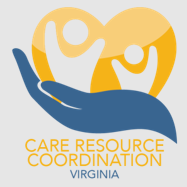Preventing Spread of Respiratory Viruses When You’re Sick
If you’re sick with a respiratory virus, such as COVID-19, influenza (flu), respiratory syncytial virus (RSV), or a cold, there are steps you can take to protect yourself and others.
Symptoms of a respiratory virus can include fever, chills, fatigue (tiredness), cough, runny nose, and headache, among others. See this fact sheet for symptoms of common respiratory illnesses (other languages below)
Stay Home if You're Sick
- Stay home and away from others when sick with symptoms of a respiratory virus.
- Resources are available if you need support while staying home.
- Get treatment right away if eligible.
- You can go back to your normal activities when, for at least 24 hours, both of these are true:
- Your symptoms are getting better overall, AND
- You have not had a fever (and are not using fever-reducing medication).
- Once you resume normal activities, take added precautions for the next five days.
- If you start to feel worse or get a fever after you have gone back to normal activities, stay home and away from others again and follow the steps above.
If at any point your symptoms worsen, or you have an emergency warning sign (like trouble breathing or chest pain), seek medical care immediately.
If you tested positive and don’t have symptoms
- You do not need to stay home but might still be contagious and able to spread the virus.
- Take added precautions for the next five days.
Take Added Precautions for Five Days
Taking the steps below for the next five days can help reduce the spread of respiratory disease to others. You might still be able to spread the virus that made you sick, even if you are feeling better. These steps are especially important to protect those most at risk for severe illness, including people aged 65 years and older and people with weakened immune systems.
- Take steps to improve ventilation for cleaner air at home and elsewhere.
- Wear a well fitting mask around others, especially those at high risk for severe illness.
- Keep distance from others.
- Clean and disinfect all frequently touched or high-touch surfaces daily.
- Cover coughs and sneezes and wash hands often.
- Get tested to inform your actions to prevent spread to others. This could include taking an at-home COVID-19 test before gathering with people indoors or before visiting an elderly relative.
Support While Staying Home
Care Resource Coordination Virginia (CRC) is a program for people who have been impacted by COVID-19 or another respiratory virus and need support when staying home. CRC coordinators can help identify local resources available to help individuals.
Respiratory Virus Treatment
People at increased risk for severe illness from respiratory viruses should get treatment to help reduce their chance of being hospitalized or dying from the disease, even if their illness is only mild to moderate initially.
People at increased risk for severe illness include:
• People with a weakened immune system (immunocompromised)
• Older adults
• People with certain medical conditions (like chronic disease, diabetes)
Treatment for flu and COVID-19 is available only by prescription and must be started within the first few days after symptoms develop to be effective. You will need to get tested to get treatment. Treatment for COVID-19 and flu can be given by a healthcare provider, pharmacy, and through telehealth services.
• Learn more about COVID-19 treatment
• Learn more about flu treatment
For More Information
- VDH Respiratory Disease Page
- CDC Preventing Spread When You’re Sick
- VDH Comparing symptoms of COVID-19, flu, strep, allergies and cold
- VDH COVID-19 Testing Website
- Care Resource Coordination of Virginia
- VDH COVID-19 hotline at 877-ASK-VDH3 (877-275-8343)
Page last Reviewed: April 17, 2024

